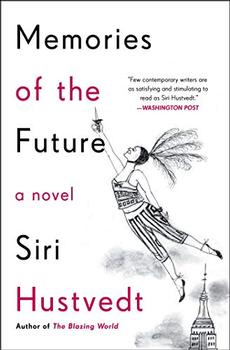Summary | Excerpt | Reviews | Beyond the Book | Readalikes | Genres & Themes | Author Bio

CHAPTER ONE
Years ago I left the wide, flat fields of rural Minnesota for the island of Manhattan to find the hero of my first novel. When I arrived in August of 1978, he was not a character so much as a rhythmic possibility, an embryonic creature of my imagination, which I felt as a series of metrical beats that quickened and slowed with my steps as I navigated the streets of the city. I think I was hoping to discover myself in him, to prove that he and I were worthy of whatever story came our way. I wasn't looking for happiness or comfort in New York City. I was looking for adventure, and I knew the adventurer must suffer before he arrives home after countless trials on land and sea or is finally snuffed out by the gods. I didn't know then what I know now: As I wrote, I was also being written. The book had been started long before I left the plains. Multiple drafts of a mystery had already been inscribed in my brain, but that didn't mean I knew how it would turn out. My unformed hero and I were headed for a place that was little more than a gleaming fiction: the future.
I had given myself exactly twelve months to write the novel. If at the end of the following summer, my hero was stillborn or died in infancy or turned out to be such a dullard that his life deserved no comment, in other words, if he was not a hero after all, I would leave him and his novel behind me and throw myself into the study of my dead (or failed) boy's ancestors, the denizens of the volumes that fill the phantom cities we call libraries. I had accepted a fellowship in comparative literature at Columbia University and, when I asked if I could defer my admission until the following year, the invisible authorities had sent me a long-winded letter agreeing to my request.
A dark room with a kitchenette, an even darker bedroom, a tiny black-and-white-tiled bathroom, and a closet with a bulging plaster ceiling at 309 West 109th Street cost me two hundred and ten dollars a month. It was a grim apartment in a scraped, chipped, battered building, and had I been just a little different, a bit more worldly or a touch less well read, its sour green paint and its views of two dirty brick walls in the stinking summer heat would have wilted me and my ambitions, but the degree of difference that was required, however infinitesimal, did not exist at the time. Ugly was beautiful. I decorated the rented rooms with the charmed sentences and paragraphs I lifted at will from the many volumes I kept in my head.
He had filled his imagination with everything that he had read, with enchantments, knightly encounters, battles, challenges, wounds, with tales of love and its torments, and all sorts of impossible things, and as a result had come to believe that all these fictitious happenings were true; they were more real to him than anything else in the world.
My first moments in my first apartment have a radiant quality in memory that have nothing to do with sunlight. They are illuminated by an idea. Security deposit down, first month's rent paid, door closed on my squat, grinning super, Mr. Rosales, sweat soaking the underarms of my T-shirt, I hopped about on the floorboards in what I believed to be a jig and threw out my arms in triumph.
I was twenty-three years old with a BA in philosophy and English from St. Magnus College (a small liberal arts institution in Minnesota founded by Norwegian immigrants); five thousand dollars in the bank, a wad of dough I had saved while I worked as a bartender in my hometown of Webster for a year after graduation and bunked at home for free; a Smith Corona typewriter, a tool kit, cooking equipment donated by my mother, and six boxes of books. I built a desk with two-by-fours and a plywood sheet. I bought two plates, two cups, two glasses, two forks, two knives, and two spoons in anticipation of the future lover (or series of lovers) with whom, after a night of delirious banging, I planned to eat a breakfast of toast and eggs, which, because I had no table and no chairs, would be consumed on the floor.
Excerpted from Memories of the Future by Siri Hustvedt. Copyright © 2019 by Siri Hustvedt. Excerpted by permission of Simon & Schuster. All rights reserved. No part of this excerpt may be reproduced or reprinted without permission in writing from the publisher.






Your guide toexceptional books
BookBrowse seeks out and recommends the best in contemporary fiction and nonfiction—books that not only engage and entertain but also deepen our understanding of ourselves and the world around us.